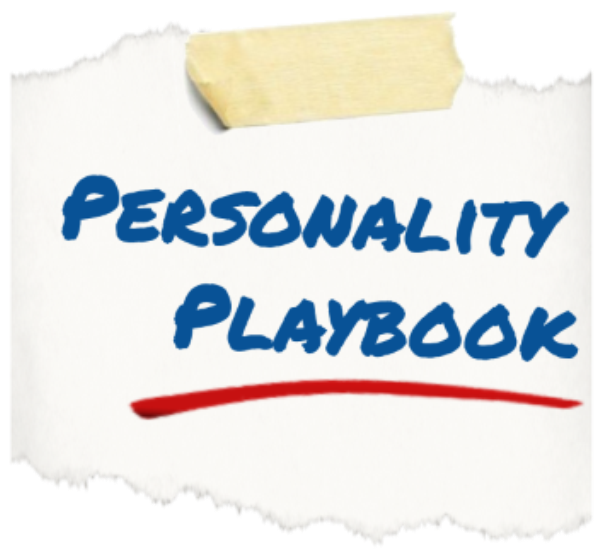
I have a confession to make. After spending what felt like 100 years hiring people to work in retail and spending time helping college students revise resumes and learn to interview well, I have developed a pet peeve. Yep, that’s right. I have developed a list of adjectives that I never want to see or hear again in the job search process. These are words that are so generic and so commonly used that they have lost all meaning for me, and they are words to that do absolutely nothing to describe who the applicant or interviewee is as a unique person. Below is far from an exhaustive list, but it contains a few of the most common offenders and my thoughts on where they lack meaning.
- Hard Working – I can’t tell you how many resume profile/summary statements start with this term, and I will admit that it has made appearances on my own resume in the past. Sure, there are a lot of people who are incredibly hard workers, but the problem comes from the fact that even individuals who would be more accurately described as “utterly and completely lazy” will proclaim themselves to be amongst the most productive individuals in society on a resume. Instead, contemplate how you are hard-working. Do you work smarter rather than harder? Perhaps you put in enough extra hours to get the job done? Maybe you never miss a deadline? Are you incredibly efficient in your use of time, so that 40 hours a week produces what others produce in 60?
- Organized – Here’s another super common adjective, though some of us suffering from messy desk syndrome avoid this one. No one is going to write, “I’m a total slob who hides food in the stacks of paper on my desk!” on their resume, so this is another place where digging deeper is necessary. Consider your particular variety of organizational skills, which could be in developing efficient and user-friendly paper filing systems, assisting entities in going paperless, beautifully juggling and scheduling multiple calendars, managing the detailed planning of company functions, or keeping a wicked clean office. All of these descriptions carry much more meaning than the generic term.
- Goal-Oriented – This term indicates an interest in goals and perhaps that goals motivate you, but what exactly do they motivate you to do? Run away, perhaps? Maybe you are awesome at setting goals and forgetting them. Once again, I encourage you to be more specific. If you’re great at carrying another person’s vision out to fruition in a timely fashion, planning projects step by step from beginning to end, or meeting deadlines beautifully under pressure, say a professional version of that instead.
- People Person – These are the two words that created my pet peeve, and I have found them to be much more common in interviews than in resumes. When I was in retail, 10 interviewees in a row used this in their description of themselves. I used to cringe, just waiting for it to attack! I assume this means some sort of interaction with humans is enjoyable, but you could say that of pick pockets. Instead, think about the interactions you particularly enjoy and/or excel at. This could be helping individuals in a one-on-one setting to reach their full potential, speaking to large audiences, networking at company gatherings, providing customers with the product that best fits their needs, or making coworkers feel comfortable and at home in the work environment.
Now that my confession is complete, how can Myers-Briggs® help? Well, rather than attempting to describe an all-encompassing norm, MBTI® provides a way to describe 16 types of “normal”. Below is a chart of phrases that describe common, job search friendly characteristics of the 8 preferences.
| Extraversion | Introversion |
|---|---|
| • Enjoys meeting and talking with new people and clients | • Enjoys maintaining good relationships with coworkers and clients |
| • Excels at brainstorming and discussing new ideas and projects in groups | • Excels at thinking through projects and ideas one-on-one, alone, and in small groups |
| • Craves a broad range of job knowledge and networking | • Craves a depth of job knowledge and may specialize in an area of particular interest |
| Sensing | Intuition |
|---|---|
| • Excels at noticing and examining concrete details of tasks and projects | • Excels at viewing the big picture of tasks and projects |
| • Skilled at dealing with the current realities of situations and taking care of the needs and necessities of the moment to keep business running smoothly | • Skilled at focusing on possibilities and ideas for the future of situations and understanding how connections between people, events, and tasks can help business run smoothly |
| • Approaches tasks in a way that seeks thoroughness and carefulness to get each component right | • Approaches tasks in a way that seeks innovation and efficient use of time |
| Thinking | Feeling |
|---|---|
| • Takes pride in making decisions objectively and consistent with the rules of the organization | • Takes pride in making decisions based on the specific concerns of individual situations and the people involved |
| • Strives to keep business and personal situations separate | • Strives to create a harmonious and inclusive work environment |
| • Performs work well by focusing on the task at hand | • Performs work well by building and maintaining productive and smooth relationships with coworkers |
| Judging | Perceiving |
|---|---|
| • Loves completing projects early and using mile-markers along the way | • Loves the rush of completing projects under the pressure of a looming deadline |
| • Enjoys planning and completion of projects | • Enjoys embarking on and the process of projects |
| • Succeeds in crisis through the use of predetermined contingency plans | • Succeeds in crisis through natural flexibility and adaptability in the moment |
Of course, not all of these phrases will fit everyone who identifies with the preference, and people have talents an passions that fall outside of what is typical for his or her type. Reading your whole type description may provide more ideas on describing your individual characteristics, and sitting down to make those characteristics more specific and nuanced to your style will go a long way in making you stand out in the world of work, as long as you are also able to show what those parts of yourself have helped you produce and contribute to projects and teams in the past.
If you have questions, please feel free to leave them in the comments section below. Also, make sure to subscribe to the blog for a chance to win a free Step II interpretation with me, via Skype or phone (see sidebar for more info)! As always, thanks for reading!






Hey, this is great I love it, thanks for sharing 🙂
Thanks for reading and for the compliment, Tawana! 🙂